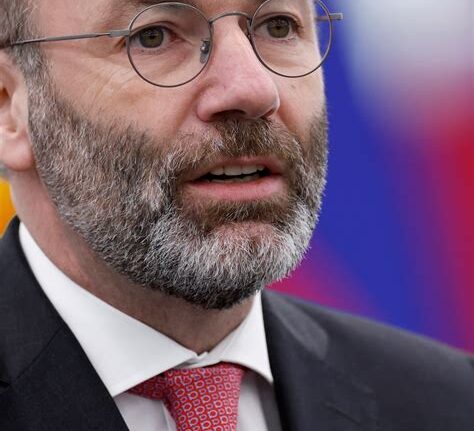In the heart of Willebroek, Belgium, lies a hidden gem that plays a crucial role in Europe’s industrial landscape. This unassuming scrap yard is more than just a collection of discarded items—it’s a hub for “urban mining,” where waste is transformed into valuable resources through the process of recycling.
As we navigate through heaps of old appliances, building materials, and vehicle remains, the significance of this operation becomes apparent. Behind the scenes, a massive metal shredder stands idle, waiting to spring into action. Trucks hustle around us, orchestrating the sorting of tons upon tons of aluminum and steel fragments. These metals are meticulously arranged alongside the waste treatment facility, poised for their next chapter—melting and reincarnation.
Amidst the clangs and hums of machinery, a conveyor belt carries the scrap metal into tanks filled with water and chemicals. Here, an intricate dance unfolds as valuable metals are extracted from unwanted impurities like rocks, glass shards, or plastic remnants. It may not be glamorous or picturesque, but this site is strategic—a vital cog in Europe’s industrial wheel.
Unveiling Europe’s Recycling Resilience
Every year sees the Belgian Scrap Terminal infusing new life into approximately 1.5 million metric tons of scrap metal across its facilities in Belgium, France, and Luxembourg. To put this staggering figure into perspective—that’s adequate metal to assemble over a million family cars!
Beneath these towering mounds of discarded treasures lies hope for Europe’s struggling manufacturers grappling with soaring energy expenses and erratic access to raw materials. The recycled metal harvested here offers a lifeline—a cost-effective reservoir that could render their products more affordable, eco-friendly, and competitive on the global stage.
Aurelio Braconi echoes industry sentiments by underscoring how offloading recycled metal to non-EU entities inadvertently backfires on European interests: “We are shooting ourselves in the foot.” He emphasizes that selling materials abroad only to have them return as finished goods puts Europe at an inherent disadvantage—a cycle that needs breaking.
Mounting Challenges Amid Global Turbulence
While recycling firms like Belgian Scrap Terminal thrive on exporting up to 90% of their output outside EU borders—an arrangement fueling business growth—the continent’s heavy industry finds itself teetering on thin ice.
With hefty blows dealt by exorbitant energy costs and impending inundation from low-cost Asian imports post-President Trump’s tariff hikes on steel and aluminum imports—the landscape looks bleak for EU metallurgical sectors.
Factor in stringent climate regulations demanding costly compliance measures from polluting industries like steel—and you have an industry caught between sustainability aspirations and economic exigencies.
The surge in global demand for secondary scrap further complicates matters—driving market prices skyward; making it increasingly lucrative for overseas buyers with less stringent green protocols to outbid European counterparts.
Clash of Visions: Recyclers vs Heavy Industries
European heavy industry stalwarts push Brussels to intervene—to stem the tide diverting recycled metal away from local shores—in hopes that bolstered supply will tip scales favorably.
Conversely—recyclers advocate vehemently against export restrictions citing operational viability concerns; highlighting how quality dictates pricing which isn’t always met locally owing to high energy overheads.
The crux lies at Brussels’ doorstep—an impending reckoning with declining heavy industries intertwined with efforts toward decarbonization via recycling mandates underpinning revitalization strategies laid bare by recent policy unveilings.
This tug-of-war pits steel & aluminum producers clamoring for homegrown protectionism against recyclers championing environmental stewardship & innovation—with each camp lobbying fervently amidst geopolitical trade tensions looming large over EU policymakers’ heads.
Analyzing Economic Realities & Climate Imperatives
As decarbonization imperatives tighten their grip on all sectors—steel & aluminum producers urge bolstered support given their foundational roles within construction & manufacturing realms; serving as linchpins supporting millions across EU economies.
Recyclers counterpoint this narrative accentuating their pivotal green agenda positioning within burgeoning low-carbon ecosystems; emphasizing innovation catalyst roles eclipsed by mere protectionist measures which risk stifling dynamic sectoral evolution needed during these transformative times.
Heather Grabbe underscores restraining scrap exports won’t address core issues plaguing sectoral competitiveness—arguing high energy prices require nuanced interventions beyond export curbs amid broader strategic recalibration debates arching over Brussels’ decision-making corridors.
**In Conclusion**
Navigating treacherous waters buffeted by current economic realities juxtaposed against emergent climate imperatives—we find outdated paradigms clashing with forward-looking solutions key in unlocking sustained industrial vibrancy while safeguarding ecological legacies.









Leave feedback about this